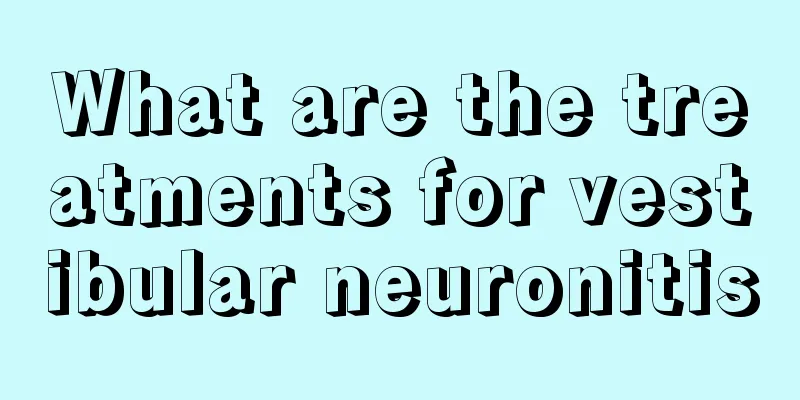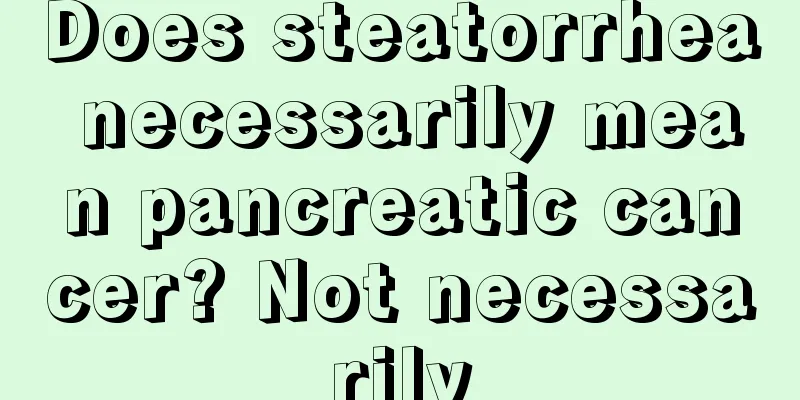What are the treatments for vestibular neuronitis

|
Vestibular neuronitis is a disease that mainly occurs through infection. During the onset of the disease, the patient's main symptom is dizziness, and even tinnitus may occur. The probability of these symptoms occurring is quite high. As the disease progresses, the patient will also feel special pain in his head. However, this pain is paroxysmal and generally will not last too long. However, every time the disease occurs, the patient will feel very uncomfortable. In addition, he may also feel dizziness to varying degrees, which is also very common. This symptom may last for more than several months, so patients must take effective treatment measures in a timely manner. 1. General treatment Rest in bed and avoid head and neck movements and sound and light stimulation 2. Symptomatic treatment Vertigo symptoms caused by vestibular damage should be treated with sedatives and tranquilizers. Those with severe vertigo and vomiting can be given intramuscular injection of promethazine hydrochloride or diazepam. If symptoms are not significantly relieved, the above treatment may be repeated as appropriate. After the vertigo is relieved, you can continue to take promethazine, diazepam or flunarizine (Sibelium). At the same time, vitamin B12, B2, niacin (nicotinic acid) or scopolamine can be taken orally and vitamin B12 can be injected intramuscularly. Hyperbaric oxygen therapy can be performed if necessary. 3. For acute attacks of vertigo Symptoms can be controlled according to the treatment of Meniere's disease. For prolonged vomiting, intravenous fluid and electrolyte replacement and supportive treatment are necessary. 4. Vestibular rehabilitation exercises.
5. Hormone therapy Prednisone is taken orally, and potassium salt is added at the same time. Drug treatment for vestibular neuritis: In the acute phase, sedatives such as diazepam and hibernation spirit should be given, and hormones also have a certain effect. During the chronic stage, nutrition should be increased, exercise should be carried out, and lesions should be removed. If the condition does not heal after long-term treatment, vestibular nerve section may be considered. Purulent labyrinthitis When pyogenic bacteria invade the inner ear, they cause diffuse purulent lesions in the labyrinth, which is called purulent labyrinthitis. In this disease, the inner ear end organs are destroyed and all functions are lost. The infection can continue to spread into the brain, causing intracranial complications. |
<<: What are the methods for correcting incisors
Recommend
How to treat a constitution prone to heatstroke
The dog days of summer can be said to be the time...
How to use bone-penetrating aroma enhancer
Bone-penetrating flavor enhancer is composed of m...
What is the standard method of brushing teeth?
Some people may have some questions. They brush t...
How to treat congenital hip dislocation, this will help
Many babies are born with certain diseases, which...
Three meals a day recipes for esophageal cancer patients
What should patients with esophageal cancer eat? ...
Why are my thighs getting thicker
For girls, losing weight should be endless, but b...
What are the reasons for numbness on the right side of the body
Normally, if you maintain a posture for a long ti...
How long can you live after intestinal perforation surgery
Both the large intestine and the small intestine ...
How to prevent pancreatic cancer
People who like to eat high-fat, high-calorie foo...
What are the symptoms of early descending colon cancer
What are the symptoms of early descending colon c...
Can you swim with tampons?
In fact, Chinese women are still relatively unfam...
Characteristics of Chinese herbal medicine in treating uterine cancer
In recent years, uterine cancer has become one of...
What is the process of making bracelets?
Many older people particularly like bracelets. Th...
Manifestations of human immunodeficiency virus antibodies
Many people may not have heard of human immunodef...
What medicine is better for itching
The body's senses are very sensitive because ...









